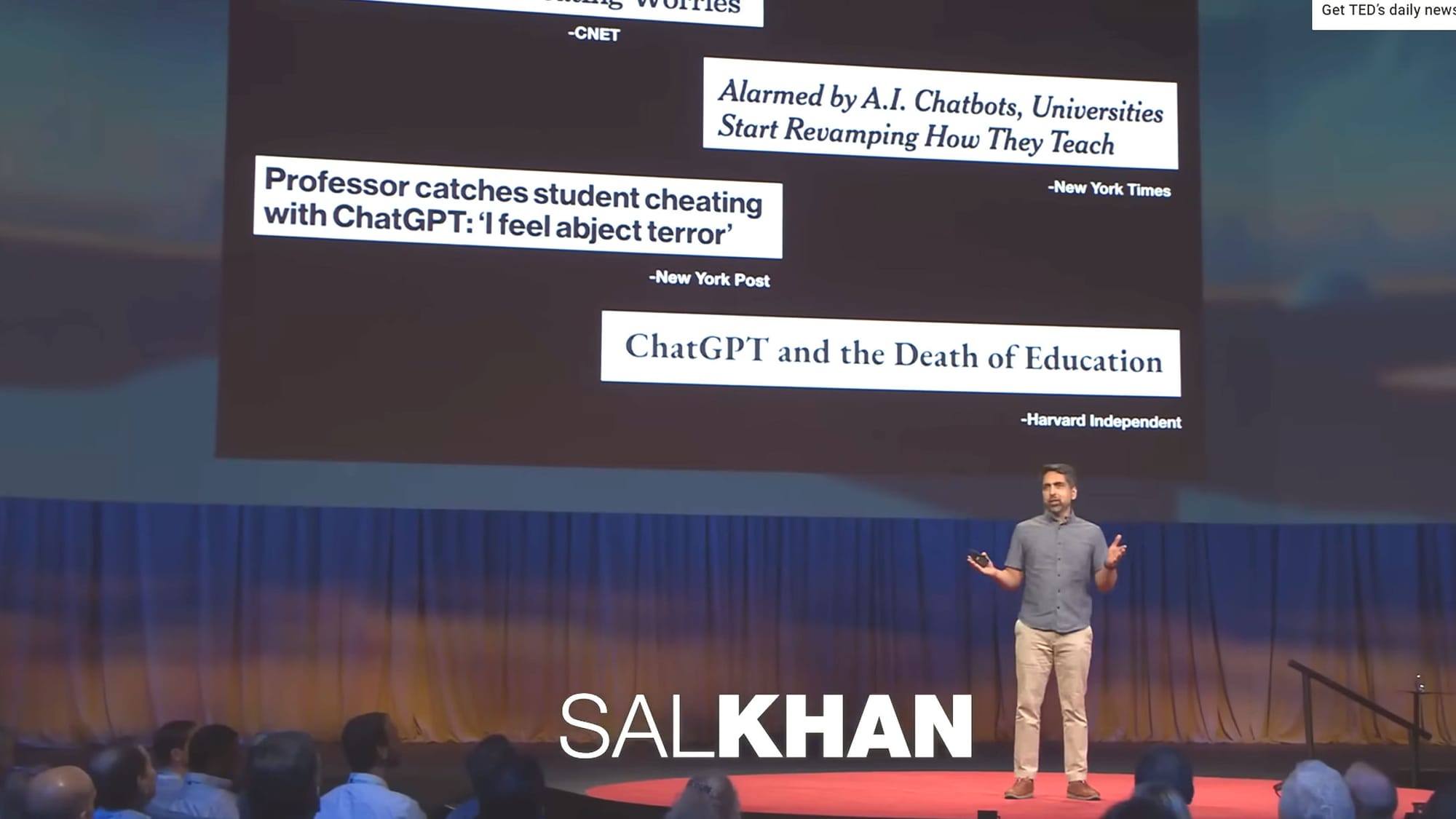Superficial Intelligence

by Maria Bustillos
Silicon Valley has been like a whole Naked Emperor nudist colony for years now, packed to the rafters with delusional buffoons demanding admiration as they yabber on about colonizing Mars, coffee with butter in it, the “Singularity,” the “Dark Enlightenment,” Bored Apes, sentient AI, one-drop hematology, “the metaverse,” tiny submarines, and other daft notions. They may not be bare-assed when they get up on stage at TED or at Davos, but with all their preening foolishness and self-consequence, they might as well be.
When you consider the power these people have over everyone’s lives, though, the buffoonery very rapidly stops being funny at all. Today’s topic is Sal Khan, former hedge-fund analyst and founder of Khan Academy, a nonprofit online learning platform offering free video tutorials and quizzes on a broad range of subjects. The company’s 990 IRS tax-exempt filing describes its mission as, “A free world-class education for anyone, anywhere.”
Since its founding in 2008, Khan Academy has attracted hundreds of millions of dollars in philanthropic funding, brought fame to its founder, and developed a significant influence on the schooling of millions of kids.
Last spring (and yes, at TED), Khan announced the development of Khanmigo, an “artificially intelligent but amazing personal tutor.”
It’s a paywall, but a small one
Read this post and get our weekdaily newsletter for $3 a month
